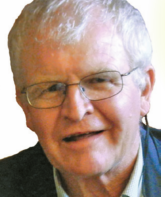For better organizational outcomes, the process is equally important
Are you creating a work environment that encourages employees to maximize their talents and bring their best selves to work? Or is the work more transactional — they do exactly what you ask, no more and no less. Are your employees going through the motions, meeting the minimum requirements while constantly watching the clock?
Every business has benchmarks, objectives and expectations, of course, and it is vital that they are well communicated so team members both understand and embrace them. But leaders who focus too much on results may be less successful (at least in the long run) than those who pay more attention to the process that helps employees achieve them. Ironically, overemphasis on results may discourage staff from bringing their whole selves to work and diminish use of their talents for your business.
What do I mean by process? I have written previously about establishing a positive culture and work climate by setting a tone that shows people you care. If your communication is all about the end results, and you don’t pay attention to supporting the people who do the work, your business will likely be less successful. When you lead by values and respect, people usually work harder.
Mary Catherine Bateson, interviewed by Krista Tippett on the Public Radio show “On Being,” observed:
“I like to think of men and women as artists of their own lives, working with what comes to hand through accident or talent to compose and recompose a pattern in time that expresses who they are and what they believe in, making meaning even as they are studying and working and raising children, creating and re-creating themselves.”
As employers, when we tap into the aspirations of our employees, their motivation increases, and higher job satisfaction leads to increased productivity. Of course, there are limits — the workplace is obviously more than a playground for personal development. Work needs to get done! But, when leaders strike the right balance, their business and employees both flourish.
To begin with the end in mind is one of Steven Covey’s seven habits, so, of course, we need to have an idea of where we want to go. At the same time, we want to avoid defining too narrowly what the end might be.
I recall learning on my life journey that the importance of having goals is not so much to achieve them as to provide a direction to get started. It is human nature to strive for results, but, by overfocusing and failing to adapt as we go along, we may miss greater opportunities.
Mediation practitioner Oren
Jay Sofer talks about practical hope, cultivating a sense of purpose
and possibility rooted in the reality that the world is constantly
changing. We all get excited about improving our lives, but navigating
hope skillfully requires us to avoid getting too hung up on achieving a
specific outcome.
Another
of Covey’s principles is to embrace proactivity, including expanding
our circle of influence. We often underestimate our ability to influence
others, and when we adopt a proactive approach to engage work
colleagues and build positive and caring relationships, we foster a work
environment that stimulates workplace motivation.
Asking good questions is another important process
skill. John Hagel wrote in the Harvard Business Review that “leaders
who ask powerful questions have the greatest success in both seizing new
opportunities and addressing unexpected challenges — and they build
cultures that will carry these benefits into the future.”
Inspiring
questions convey that the leader doesn’t have all the answers, and this
openness and humility encourages employees to do more.
How
are you doing as a leader when it comes to balancing results and
process? Are you proactively creating a work climate that encourages
those who work with you to fully apply their talents, find meaning in
their work and maximize productivity? It is never too late to try
something different.
As
C. S. Lewis observed: “You can’t go back and change the beginning, but
you can start where you are and change the ending.” List three specific
things you could do to strengthen your leadership effectiveness by
focusing more on people and positive work processes.
We
each have an extraordinary opportunity to make a difference in people’s
lives, including our own. Don’t underestimate your impact.
Douglass P. Teschner, founder of Growing Leadership LLC, can be reached at dteschner@Growing-LeadershipLLC.com.